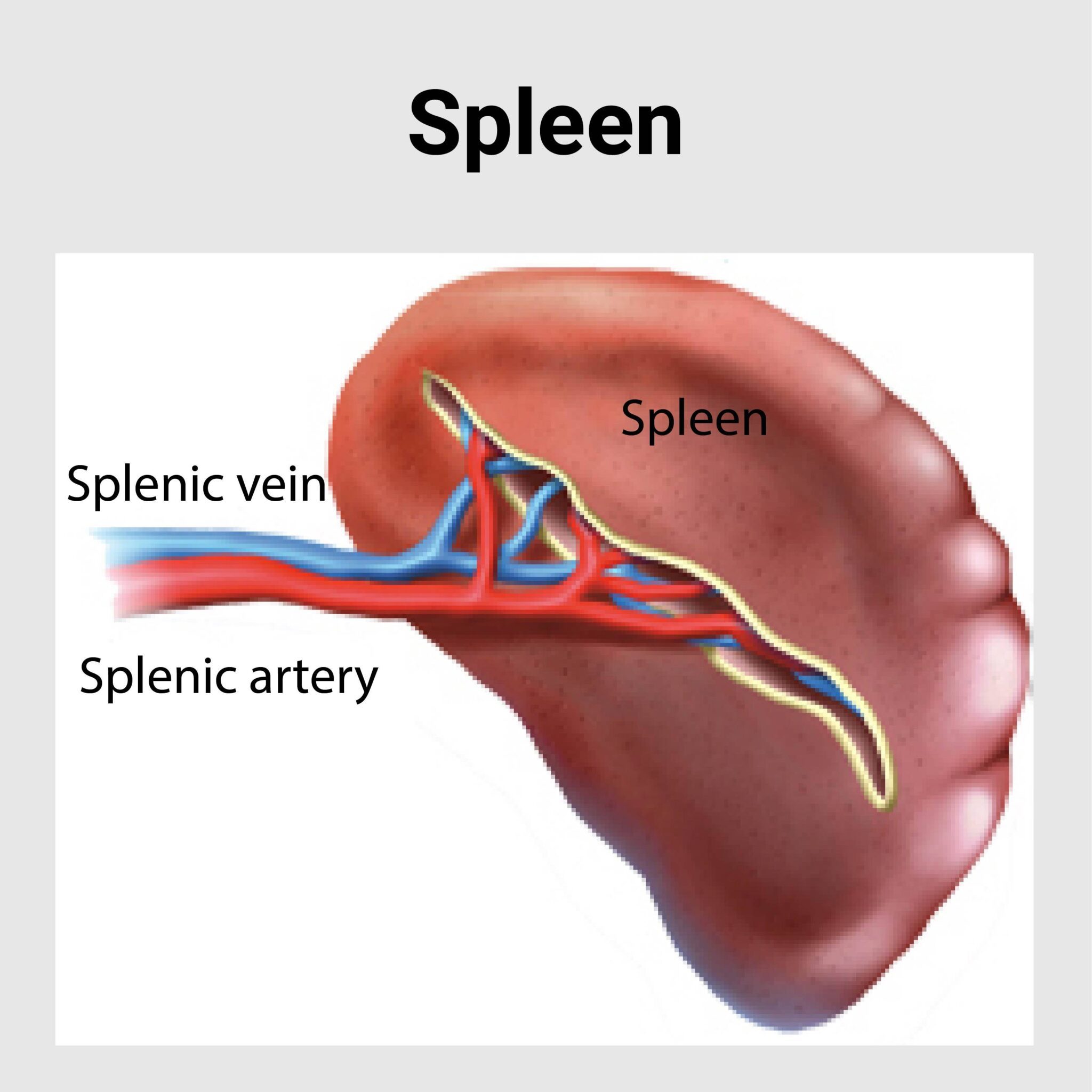Where's The Spleen Located? A Comprehensive Guide To Understanding This Vital Organ
Alright, let’s get right to it—where’s the spleen located? You might’ve heard about this mysterious organ but never really bothered to dig deeper. Well, today’s your lucky day because we’re diving into the nitty-gritty details of the spleen’s location, its functions, and why it matters to your overall health. So, buckle up and let’s explore the ins and outs of this underrated powerhouse!
Now, I know what you're thinking. "Why should I care about the spleen?" Great question! While it’s not as flashy as the heart or brain, the spleen plays a crucial role in your immune system and blood filtration. It’s like the unsung hero of your body, quietly doing its job without much fanfare. Understanding where it’s located and what it does can give you a better appreciation for the complexity of the human body.
In this article, we’ll break down everything you need to know about the spleen. From its anatomical location to its functions, we’ll cover it all in a way that’s easy to understand. So, whether you're a curious learner or someone looking to deepen their knowledge of human anatomy, you’re in the right place. Let’s get started!
- Unveiling The Truth Behind Buscar Kid And His Mom Cctv A Closer Look
- Nikita Kinka Rising Star In The Spotlight
Table of Contents
- Where’s the Spleen Located?
- Anatomy of the Spleen
- What Does the Spleen Do?
- Why Is the Spleen Important?
- Common Spleen Problems
- How Are Spleen Issues Diagnosed?
- Treatment Options for Spleen Issues
- Preventing Spleen Problems
- Fun Facts About the Spleen
- Final Thoughts
Where’s the Spleen Located?
Alright, let’s talk about the big question—where’s the spleen located? The spleen is nestled in the upper left part of your abdomen, just under your rib cage. It sits near your stomach, pancreas, and left kidney. Think of it as your body’s little helper, tucked away in a spot where it can do its job without getting in the way.
Now, here’s the interesting part—the spleen isn’t super big. It’s about the size of your fist, but don’t let its small size fool you. This organ packs a punch when it comes to keeping you healthy. Its location is strategic, allowing it to filter blood and store red blood cells efficiently.
How Does the Spleen’s Location Affect Its Function?
Since the spleen is located near the stomach and other vital organs, it’s perfectly positioned to do its job. It acts as a filter for your blood, removing old or damaged red blood cells and trapping bacteria and viruses. This location also makes it easier for the spleen to communicate with the immune system, ensuring your body stays protected.
- Camilla Araujo Of Leaks The Rising Star Who Shakes The Industry
- Camilla Onlyfans Leak The Untold Story You Need To Know
Anatomy of the Spleen
Let’s take a closer look at the anatomy of the spleen. This organ might be small, but it’s packed with important structures. The spleen is made up of two main types of tissue: red pulp and white pulp. The red pulp is responsible for filtering blood, while the white pulp helps fight infections.
Here’s a quick breakdown of the spleen’s anatomy:
- Red Pulp: Filters old or damaged red blood cells.
- White Pulp: Produces and stores white blood cells.
- Capsule: A tough outer layer that protects the spleen.
- Lymph Nodes: Small structures that help fight infections.
Why Is the Spleen’s Anatomy Important?
Understanding the spleen’s anatomy gives us insight into how it functions. The red and white pulp work together to keep your blood clean and your immune system strong. Without this intricate structure, your body would struggle to fight off infections and maintain healthy blood circulation.
What Does the Spleen Do?
Alright, let’s talk about the spleen’s main job. While it might not be as famous as the heart or lungs, the spleen plays a vital role in your body. Here are the key functions of the spleen:
- Blood Filtration: The spleen removes old or damaged red blood cells from circulation.
- Immune Response: It produces white blood cells that help fight infections.
- Blood Storage: The spleen acts as a reservoir for red blood cells and platelets.
- Iron Recycling: It recycles iron from old red blood cells to create new ones.
So, as you can see, the spleen is more than just a small organ—it’s a multitasking powerhouse that keeps your body running smoothly.
How Does the Spleen Help Fight Infections?
One of the spleen’s coolest features is its ability to produce white blood cells. These cells are like your body’s security guards, patrolling your bloodstream and attacking any invaders. The spleen also traps bacteria and viruses, preventing them from spreading throughout your body. This makes it an essential player in your immune system.
Why Is the Spleen Important?
Now that we’ve covered the spleen’s location and functions, let’s talk about why it’s so important. The spleen is often overlooked, but it plays a crucial role in maintaining your overall health. Without it, your body would struggle to fight off infections and maintain healthy blood circulation.
Here are a few reasons why the spleen is so important:
- It helps protect you from infections by producing white blood cells.
- It filters your blood, removing old or damaged red blood cells.
- It stores red blood cells and platelets, which can be released during emergencies.
- It recycles iron, ensuring your body has the resources it needs to create new red blood cells.
Can You Live Without a Spleen?
Here’s a question you might be wondering about—can you live without a spleen? The short answer is yes, but it’s not ideal. People who have had their spleen removed (a procedure called a splenectomy) can still live healthy lives, but they’re at a higher risk of infections. That’s why it’s important to take extra precautions if you’ve had your spleen removed.
Common Spleen Problems
Like any organ, the spleen can develop problems. Some common spleen issues include:
- Splenomegaly: An enlarged spleen, often caused by infections or liver disease.
- Spleen Rupture: A tear in the spleen, usually caused by trauma.
- Spleen Cancer: Rare but possible, often linked to lymphoma or leukemia.
While these conditions are relatively rare, they can be serious if left untreated. That’s why it’s important to be aware of the symptoms and seek medical attention if you suspect something’s wrong.
What Causes an Enlarged Spleen?
An enlarged spleen, or splenomegaly, can be caused by a variety of factors. Some common causes include infections, liver disease, and certain types of cancer. Symptoms of an enlarged spleen include pain in the upper left abdomen, feeling full quickly, and fatigue. If you experience these symptoms, it’s important to see a doctor for a proper diagnosis.
How Are Spleen Issues Diagnosed?
Diagnosing spleen issues usually involves a combination of physical exams, imaging tests, and blood tests. Your doctor might use an ultrasound or CT scan to get a closer look at your spleen. Blood tests can also help identify any underlying conditions that might be affecting your spleen.
Here’s a quick rundown of the diagnostic process:
- Physical Exam: Your doctor will feel your abdomen to check for swelling or tenderness.
- Imaging Tests: Ultrasound or CT scans can help visualize the spleen and identify any abnormalities.
- Blood Tests: These can help detect infections or other conditions affecting the spleen.
Why Is Early Diagnosis Important?
Early diagnosis of spleen issues is crucial because it can prevent complications. Conditions like an enlarged spleen or spleen cancer can become serious if left untreated. By catching these issues early, your doctor can develop a treatment plan that addresses the underlying cause and prevents further damage.
Treatment Options for Spleen Issues
Once a spleen issue has been diagnosed, your doctor will recommend a treatment plan based on the severity of the condition. Treatment options might include:
- Medications: Antibiotics or other drugs to treat infections or underlying conditions.
- Surgery: In severe cases, a splenectomy (removal of the spleen) might be necessary.
- Monitoring: For mild cases, your doctor might recommend regular check-ups to monitor the condition.
It’s important to follow your doctor’s recommendations and seek medical attention if your symptoms worsen. Remember, early treatment can make a big difference in your recovery.
What Happens After a Splenectomy?
If you’ve had your spleen removed, you’ll need to take extra precautions to protect yourself from infections. This might include getting vaccinations, avoiding crowded places during flu season, and practicing good hygiene. Your doctor will provide you with a detailed plan to help you stay healthy.
Preventing Spleen Problems
While some spleen issues are unavoidable, there are steps you can take to reduce your risk. Here are a few tips for preventing spleen problems:
- Maintain a Healthy Lifestyle: Eat a balanced diet, exercise regularly, and get enough sleep.
- Practice Good Hygiene: Wash your hands regularly and avoid close contact with sick people.
- Get Vaccinated: Stay up-to-date on your vaccinations, especially if you’ve had your spleen removed.
By taking these steps, you can help protect your spleen and reduce your risk of developing serious health issues.
Fun Facts About the Spleen
Before we wrap up, let’s have a little fun with some spleen trivia:
- The spleen is about the size of your fist.
- It can store up to a cup of blood in reserve.
- The spleen is sometimes referred to as the "graveyard of red blood cells."
- It’s the largest organ in your lymphatic system.
Who knew the spleen was so fascinating? This little organ might be small, but it’s packed with interesting facts and functions that make it an essential part of your body.
Final Thoughts
Alright, we’ve covered a lot of ground today. From where’s the spleen located to its functions and importance, we’ve explored everything you need to know about this vital organ. The spleen might not get the attention it deserves, but it plays a crucial role in keeping you healthy.
Remember, if you suspect something’s wrong with your spleen, don’t hesitate to see a doctor. Early diagnosis and treatment can make a big difference in your recovery. And if you’ve had your spleen removed, take extra precautions to protect yourself from infections.
So, there you have it—a comprehensive guide to understanding the spleen. We hope this article has given you a better appreciation for this underrated organ. Now, go out there and spread the word about the amazing things your spleen does for you!
If you enjoyed this article, don’t forget to share it with your friends and family. And if you have any questions or comments, feel free to leave them below. Thanks for reading!
- Paige Vanzant Leaked The Untold Story And What You Need To Know
- Emilianos Wand The Magical Story Behind La Varita De Emiliano

Spleen Diseases Best Gastroenterology Hospital in India

Spleen Diseases Spleen Pain Swollen Spleen MedlinePlus

A/Prof Jaber Diseases of the Spleen